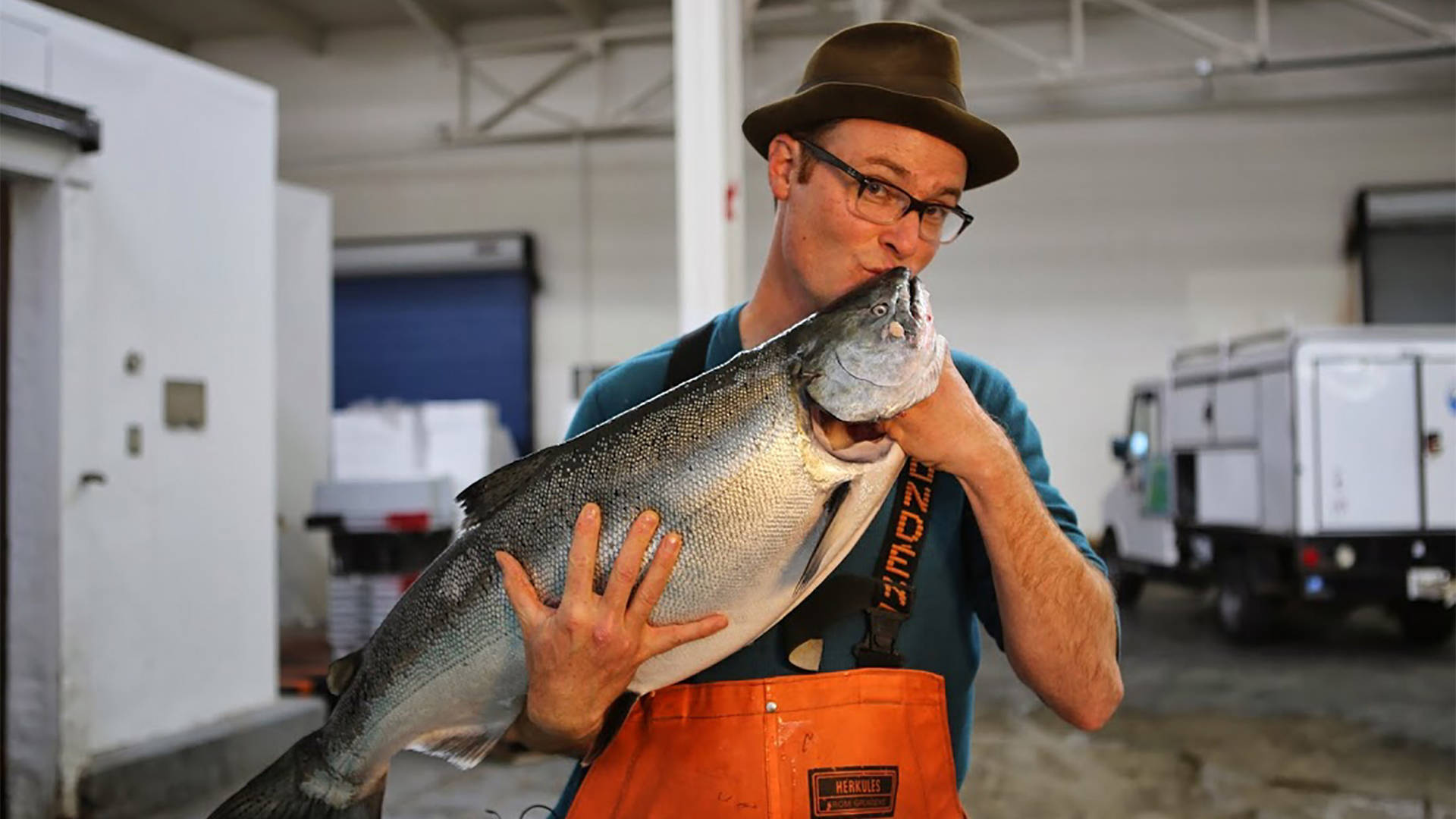At an event in Washington D.C. back in September, an indigenous elder stood in front of a small audience and spoke about a recent visit to the water protectors’ encampment in North Dakota. It was still warm then, and the camps were full of prayer and camaraderie, he said, but the contractors hired to build the pipeline had set dogs loose on the campers just before he arrived. There was a lot of work to do, but he was glad he joined them.
“I bet you want to know how you can help,” he said. “And I can tell you one way you can help, right now, right here, and it’s completely free.” The audience, expecting to be asked either to donate money or to travel to the camp, was all ears. “I want everyone here to vow never to touch a plastic bag again. We’re out there protecting the river from a pipeline, right? Plastic comes from oil. And where does it end up? In the water.”
Since then, the water protectors at Standing Rock have grown in number, but the National Guard has been called in, law enforcement has used water cannons on protestors in freezing weather, and many more people wonder what they can do about it. One thing: swear off plastic. Here are a few ideas for gift-giving that either replace plastic, circumvent it altogether, or just make it a little easier to eat locally and sustainably.
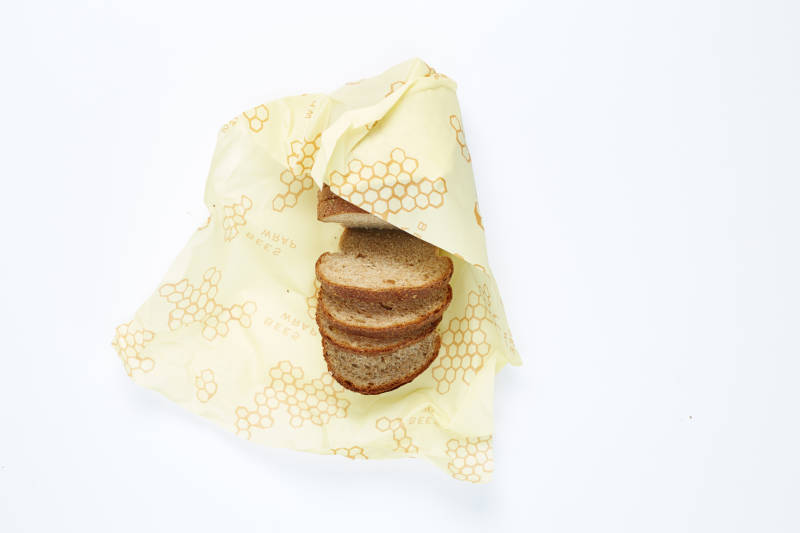
Bees Wrap
More Information
I like to stand in Rainbow Grocery near the Bees Wrap display and wait. It’s never long before some unsuspecting sustainable-food enthusiast comes along, and when they do I say, “Have you seen this thing? It replaces plastic wrap. And it smells like honey.” I like to tell my fellow shopper how Bees Wrap uses the heat of your hand to help the wax-infused organic cotton conform to the shape of your partially consumed food item or container. (I get a light mist in my eyes at this point.) It creates a seal that’s not airtight but plenty snug, I say, and you will not believe how long bread can last this way. (The total stranger is entirely under my spell at this point.) How long? They ask. Like a week, I say. No, they say. Oh yes, I say, it’s all real. This is no fairy tale. Rapt, the sustainable-food enthusiast will then turn to the display and rub the swatch of demonstration Bees Wrap between their fingers. It really does smell like honey, they say. And I say they just came out with some really cute new patterns in addition to the original dun-and-amber honeycomb print. How do you, my new friend might begin, but I place a finger to my lips and extend a hand to silence them. Soap and water, I say soothingly. Just plain soap and water. The only thing I don’t say while standing there in the aisle is that Bees Wrap is handmade by a group of strong, happy farm women in Heaven, Vermont.
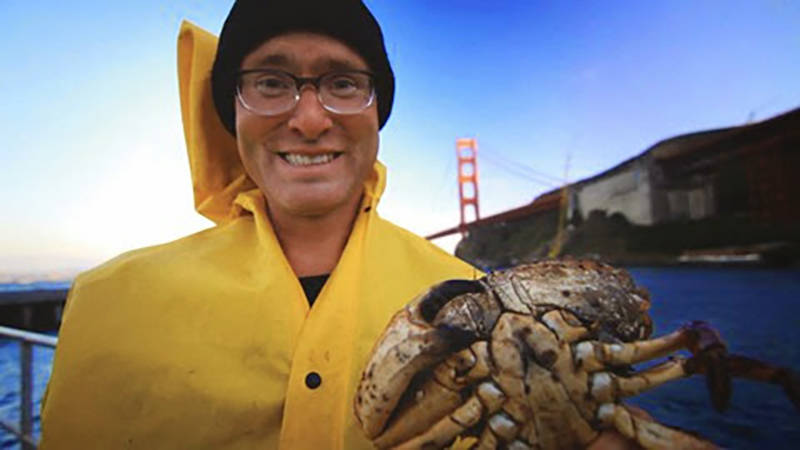
Sea Forager Seafood Community Supported Fish
More Information
Kirk Lombard is nuts about fishing. He loves eels so much it’s hard to get him to talk about anything else, except night smelts, or cod. Or geoducks— don’t get him started on geoducks, please, for the love of everything good and right in the world, just don’t ask. Lombard is the head fisherman for Sea Forager Seafood, and as a former employee of the Pacific States Marine Fisheries Commission — he was the guy who’d tell you your fish was too small and to throw it back — he’s well aware of just what a person can pull out of local waters to eat, and what should stay in the sea. Lombard’s mania has been harnessed into a sustainable dinner option and cooking challenge called Sea Forager, where foodies sign up to receive a weekly box of fish (“the Slab: strictly fish fillets”) or other treats (“Neptune’s Delight: fillet, shellfish, or whole small fish”), and optional add-ons like sea vegetables including Mendocino kombu, or fresh-milled local Bayview pasta. From a health standpoint, a farming point of view, and taking into account a global-sustainability perspective, getting a subscription is a wise move. So sign up and meet new fish! Learn new dishes! Think of the omega-3s! Just don’t ask Kirk Lombard about geoducks.
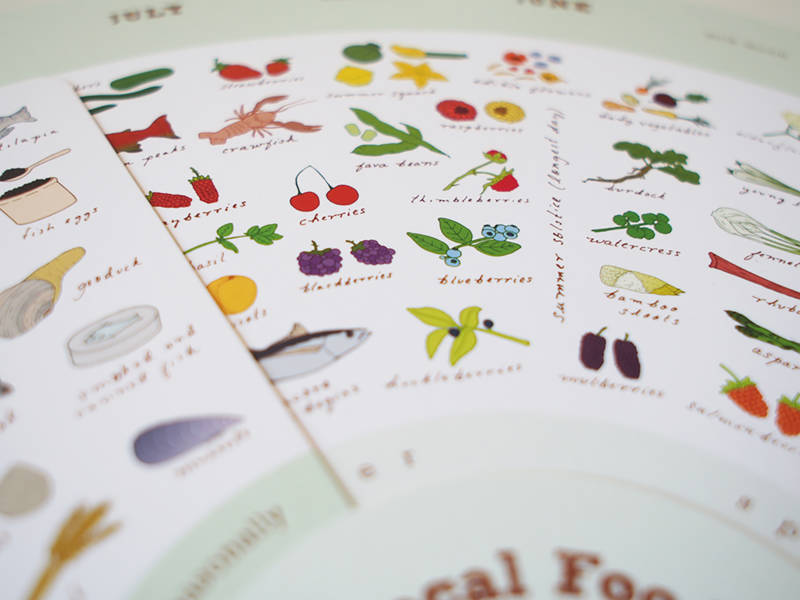
The Local Foods Wheel
More Information
Most food-focused Bay Areans already have one of these simple, artful devices. In case you don’t, the Local Foods Wheel shows what’s in season month by month, as well as what’s sustainable and delicious all year long. The circular two-piece poster revolves around the tack you anchor it with, and what’s really fun is looking ahead, to greedily anticipate the arrival of, say, the Dungeness crab season and citrus glut of December and early January in Northern California. However, California isn’t the only place in the world. The Wheels’ trio of creators also produce Local Foods Wheels for other regions, such as the Northwest, which covers not only Oregon and Washington and their coastal waters but Idaho too, providing information on the wild berries that are found in a state known more for potatoes. The Upper Midwest Wheel covers Illinois, Indiana, Iowa, Michigan, Minnesota, and Wisconsin, where in spite of the rather dire weather, one can eat good seasonal food “even in the winter!” according to the Wheel-makers. Maybe best of all is this: We Californians now have the option to make a gift of the Local Foods Wheel to our relatives in New York City itself. No excuses Big Apple; help your foodie friends in Brooklyn greedily anticipate when maple syrup and wild mushrooms will be in season.
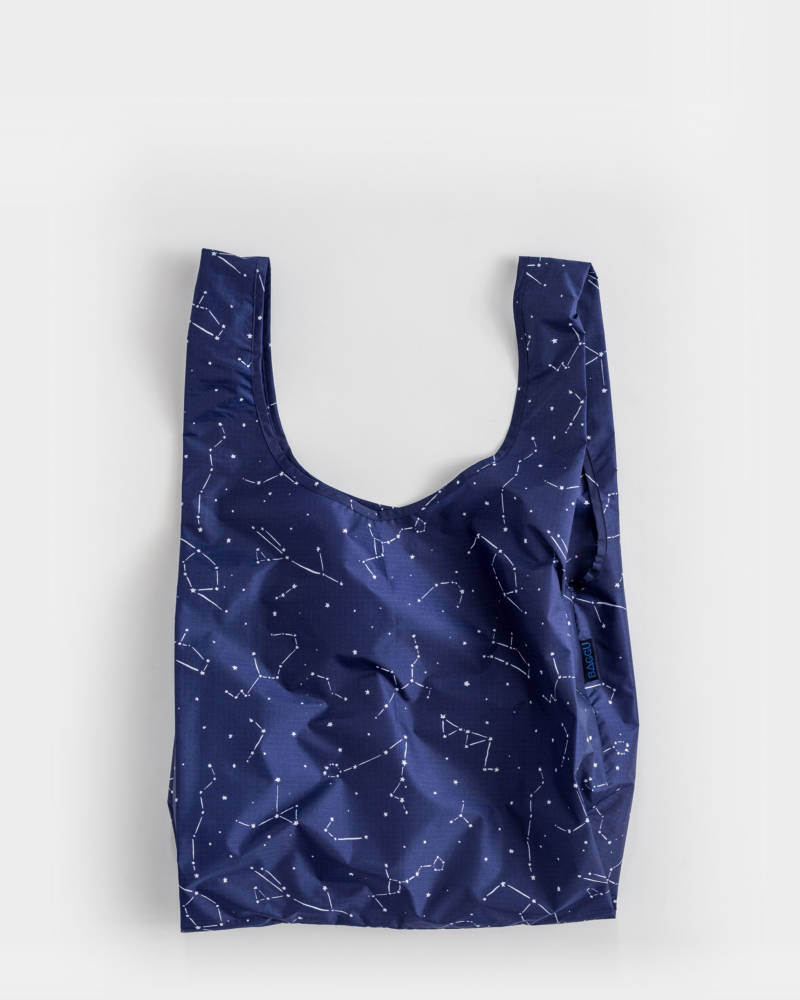
Baggu shopping bags
More Information
In the Bay Area, it seems that only the incurably contrary are still pulling in favor of free, single-use plastic bags. The rest of us here already own Baggus (or should, soon). The emergent champion in a crowded field of reusable shopping bags, the Baggu is many things to many people. It’s light, it’s compact, it sits well on the shoulder whether it holds two small yogurt cartons or twenty pounds of pie apples. It’s also washable. But Baggu, unlike most reusable-bag outfits, is equal parts ecologically and socially conscious producer and obsessively creative fashion design house. To put it in basic terms, Baggus are SO CUTE YOU GUYS. You can get Standard Baggus ($9) with a Warhol-inspired banana print, a dark blue one with constellations, a white one with black ink-drawings of boobs, or a red one with white foxes. Or stripes. Or watermelons. Or donuts. Alternatively, a wide range of solid colors has you minimalists covered. Like good fashion citizens, Baggu designers sometimes issue limited-edition prints — black with Moon phases, we hardly knew ye! And here’s the thing: In other parts of the country, people sometimes have no idea reusable bags even exist, let alone how fun it is to carry them. Baggu makes Baby Baggus ($7) as well, for smaller items and or for kids.
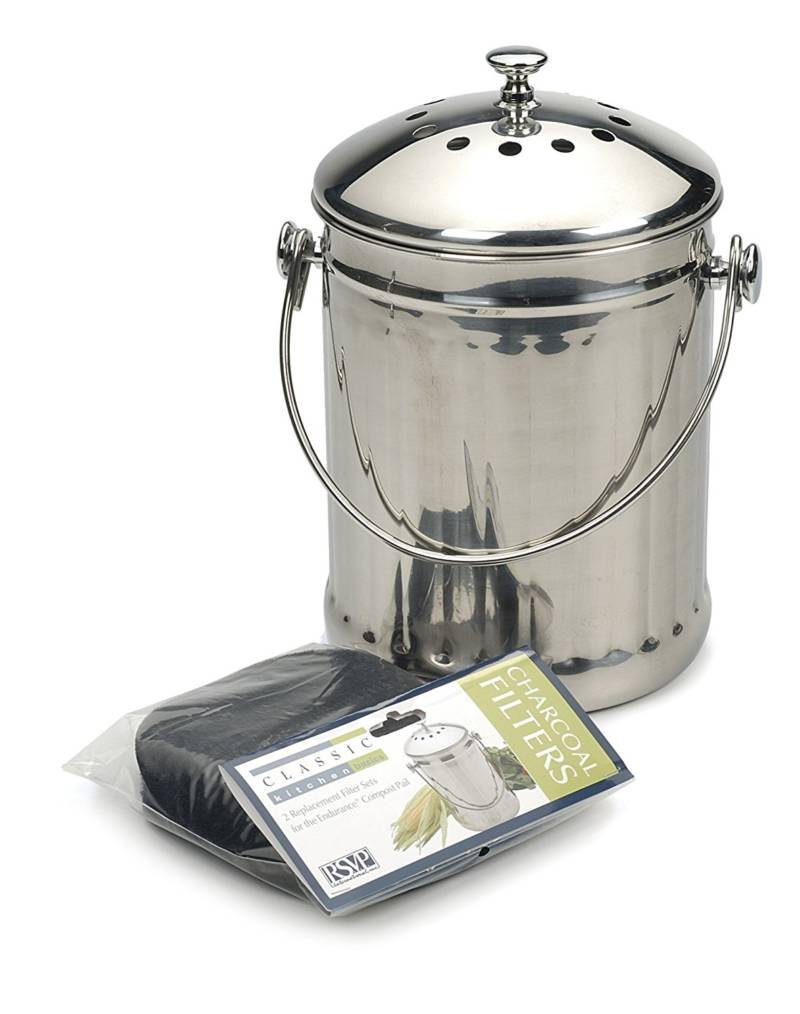
RSVP Compost bucket
More Information
Recently, I found myself in conversation with someone who disdained sturdy countertop compost pails. Really. This misguided eater labored under the impression that disgusting, small, unpleasant receptacles, preferably cracked and mold-stained plastic yogurt containers, were best and most illustrative of an admirably austere lifestyle. Really. And I’m as excited about sustainability one-upmanship as anyone (just ask me about my laundry-to-landscape greywater system), but I have put in long years of composting that involved unnecessary intimacy with biological decay, the kind of intimacy that regularly encompassed four of the five senses. And my commitment to composting — which is, after all, one of the most brilliant things a person can do in this lifetime — is no more or less than it was when I started doing it. I love it! Still, there is no reason to make it into a self-punishment game, and there’s nothing beneficial about gag-inducing sights, smells and sounds from a plastic compost bin. Several years ago I had the good fortune to stay at the home of a well-known performance artist and climate activist, and I was appalled to find their otherwise excellent household suffering from a cracked and mold-stained plastic yogurt container that they used as a compost receptacle. When I returned home, I immediately sent them one of these large, attractive, strong compost pails with features such as replaceable stink filters. The thank-you note I received was joyful, and in essence admitted that this intelligent family had been laboring under the impression that disgusting, small, unpleasant receptacles were best. A real grown-up compost pail, in reality, represents maybe even a greater love of composting than its ancestors; sending the message: “I take composting extremely seriously. It’s not a game to be played with toys. Gaze upon my pail and rejoice.” Buy one for a suffering loved one this holiday season, and free them from their old yogurt container forever.
